Life Seems So Much Simpler When You’re Fixing Things
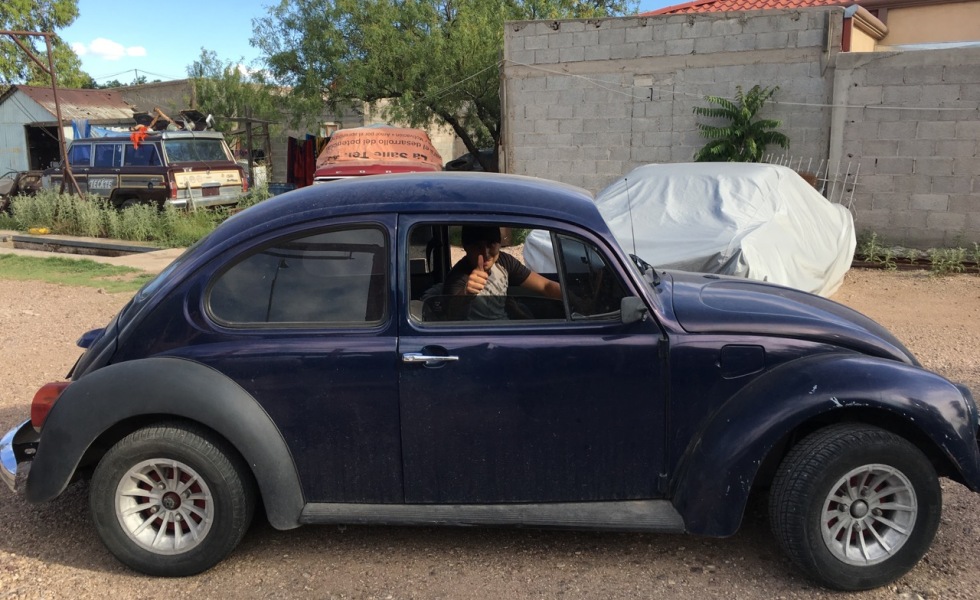
If you only have a minute:
This blog post recounts my experiences fixing mechanical and electronic devices, learned from my father and uncles. I share stories of helping my father through his fight with cancer, and the aspirations of my late brother, who adored a Volkswagen Beetle that our dad restored after my brother’s passing. I also reflect on the loss of my brother’s potential and hope the restoration project will help my father grieve. I plan to visit my father soon, drive the Beetle, and remember my brother while exploring the desert roads and enjoying tacos (or a salad).
You have more than a minute? Read on:
As I took my daughter’s bicycle out of the back of the car, we noticed the bell she uses to announce her presence fell off. “Daddy, can you fix it?”
“I can.”
“You’re so good at fixing things,” she said.
“I got it from your grandfather.”
As long as I can remember, I have been able to fix all sorts of mechanical things. As dad worked on cars of all shapes and complexity, I watched and learned. He taught me to use all his tools, making me memorize their names and functions. This later spread to electronics by watching my uncles work on radios and televisions. When I got my first Nintendo Entertainment System, one of my uncles opened it up and fixed it after a power surge. We sat there as he tested one circuit after another. When he found the fried contact, he soldered together a repair.
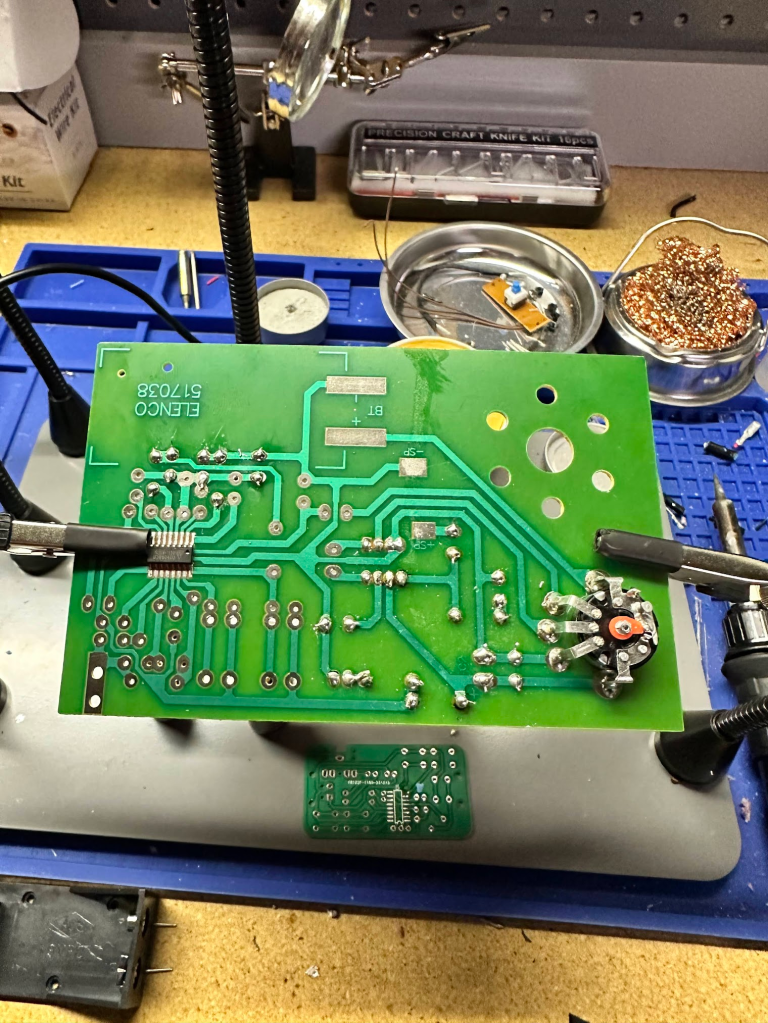
Of course, there are things you can’t fix. I could not fix the woman who was run over in front of the school. I could not fix the man who fell into the train well at the metro station. And I could not fix the man who shot himself in the mouth.
I could only help until the physicians could try to save them.
Andres and His Beetle
Back in 2016, my brother Andres and I helped dad navigate through his fight with colon cancer. Andres was there with him most of the time. When I traveled down to help set up dad with a biopsy, and then a horrendous surgery, Andres was there to help me go from one place to another. As dad rested after his surgery, we went and had dinner at a roadside taco stand. We had breakfast at a roadside breakfast taco stand. We had some great conversations.
Andres had great aspirations for himself. He studied forensic science back then, and worked at a recycling plant, separating recyclable materials from trash. He didn’t like the job, but it was a job that paid the bills. He was proud of being able to help his mother, and he was proud it was an “honest job.” Around him and in that part of Mexico, the only people who seem to get ahead either move to the United States, already come from a wealthy family, are lucky, or join an organized crime group. There are a million stories of kids drawn in by the prospects of easy cash, only to be killed by a rival gang (or the Mexican armed forces), or end up in prison.
He worked hard to break the mold, and he did. Once dad was better, Andres started forensic science school. He would tell me over text messages and phone calls how happy he was, and how everything was so interesting. Because I was an amateur photographer, he consulted with me on the best camera to get for his class on forensic photography. After looking around in local shops and online posts, he found one he could use. I sent him the money for it, and he was so happy. He said he’d pay me back someday, but I reminded him of how brotherhood works. They’re all gifts, not loans.
To help him move around, dad fixed up an old Volkswagen Beetle he had in the shop. It was an old model, one of those you now only see driven around by enthusiasts, or exhibited at classic car gatherings. In Mexico City, they were the only car driven by taxi drivers until Volkswagen ended their production. But it has always been a favorite car of my dad and his brothers.

Andres loved that thing. It was small and agile, and did not quit. If you don’t know much about these cars, you should know that their machinery is simple. They don’t have a fluid cooling system like other cars. Their engine is air-cooled. The Germans designed the engines during World War II to be minimalist engines that any small shop could repair with scrap parts. A couple of belts made from rubber or any other flexible material around transfers the energy from the engine to the alternator for electric power. I mean, look at this and compare it to the wire-heavy, electronic-intense engines of today:

Andres loved to drive that car, and he was known among his friends for having it. Whenever it needed some sort of service, dad was more than happy to work on it. Like me, you can’t put a puzzle in front of dad and expect him not to try and solve it. The man can spend hours fixing things, his tongue sticking out of the corner of his mouth, just like my daughter does when she’s working on a problem. Besides, it wasn’t like dad didn’t have plenty of spare parts around his shop.

Dad Fixes the Beetle, and Says Good-Bye
Andres died in April 2022. A few months before his passing, he skidded into a sidewalk during a rain storm and bent the rear part of the car’s frame. As with anything that has to do with a car’s frame, the Beetle was sidelined until dad could take it apart completely and either fix the frame or get a new one. But then Andres died, and the car sat waiting for months.
Dad started to work on the car to deal with grief. Thinking back on all the times he told me how therapeutic it felt to work on engines and cars, I was surprised he had not done it sooner. But we all grieve at our own pace. The car needed a lot of work, so he took it slow.
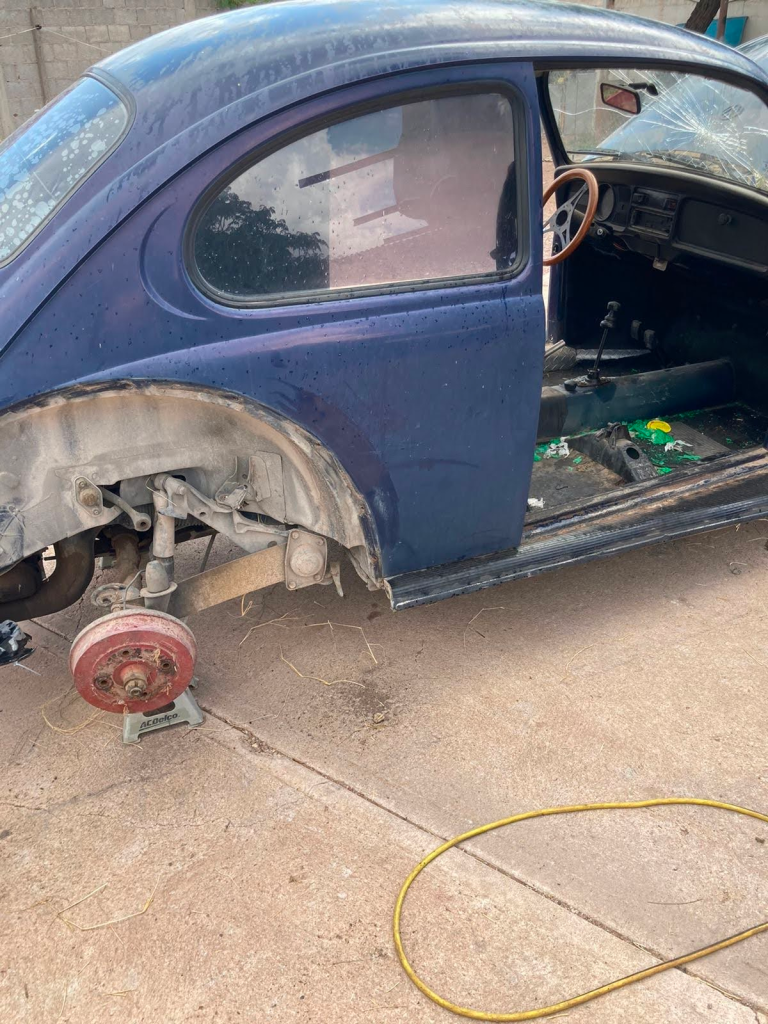
He took it off the frame to see if the frame was salvageable. It was not. It was too bent, so he looked around town for a good frame. He found one. Like the ship of Theseus, the Beetle would get some new parts.

Over the next few months, he put the car back together. He gave it a new paint job. He replaced the windshield. And he replaced the tires and wheels. He just finished the restoration this week:
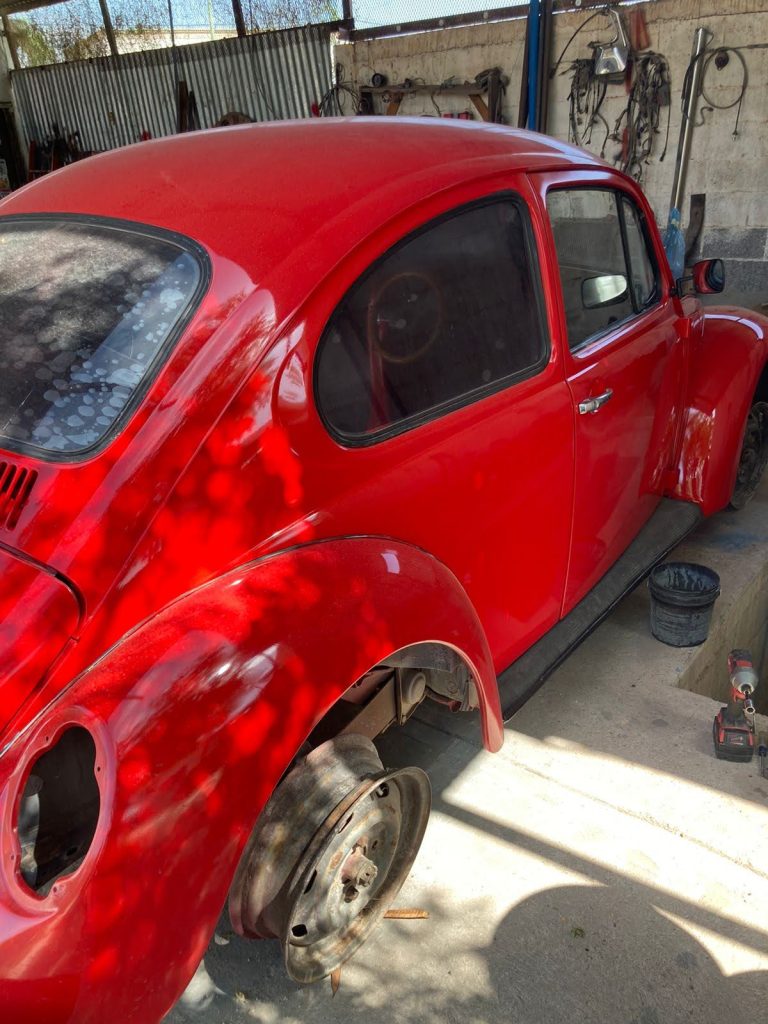
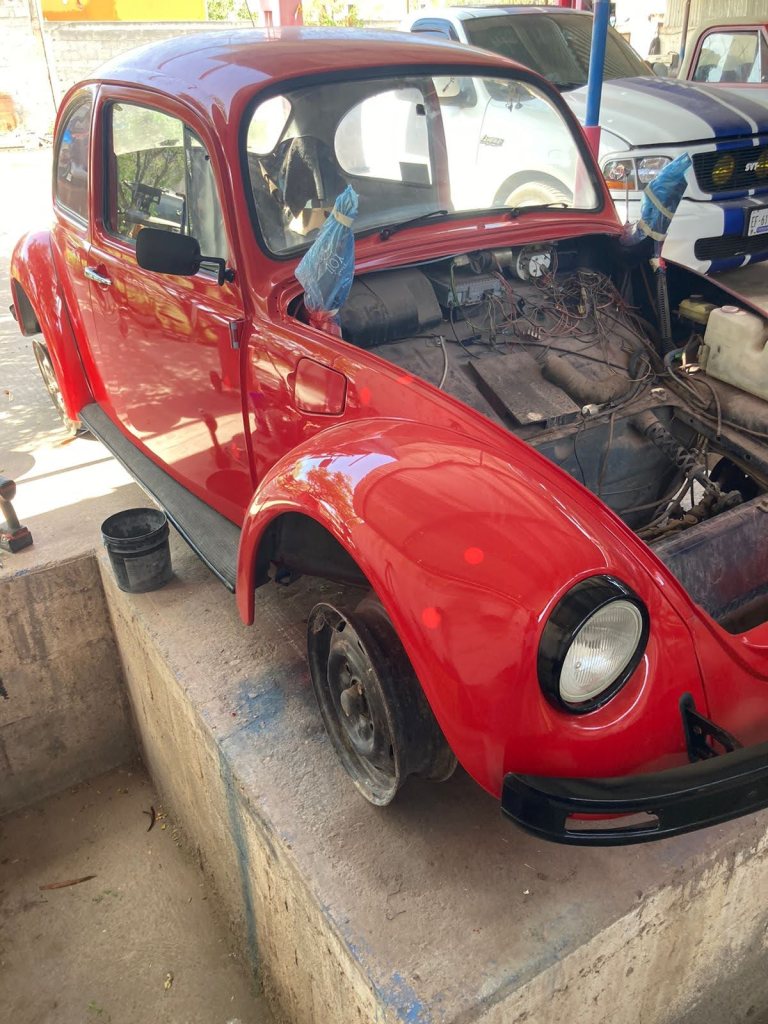
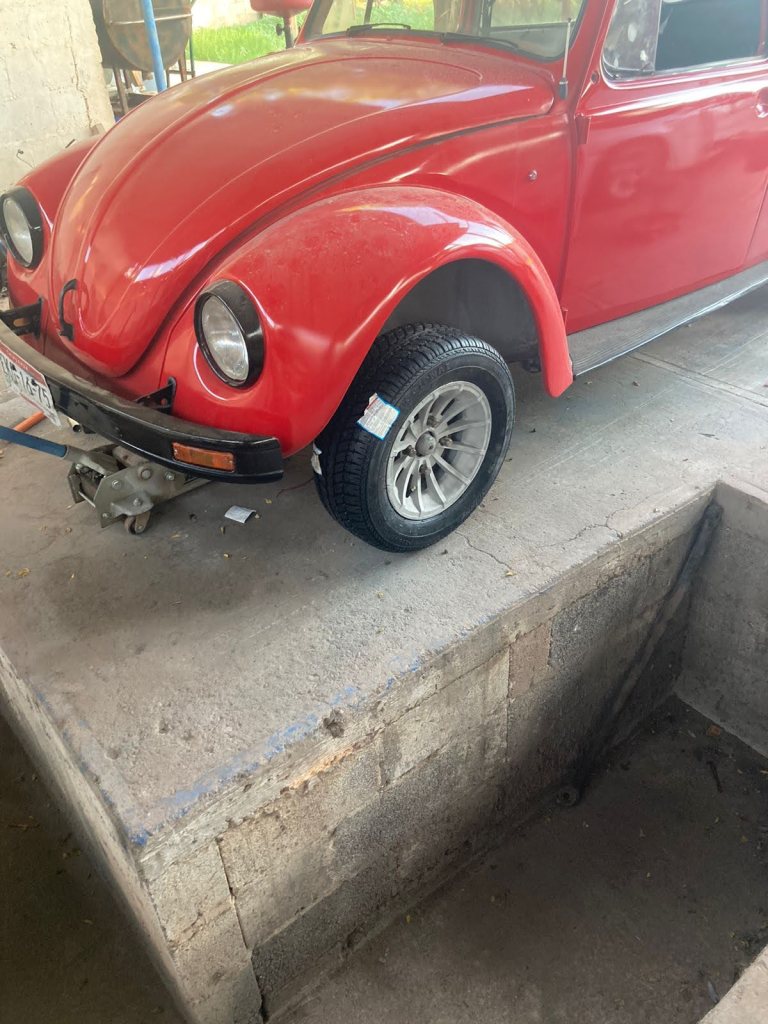
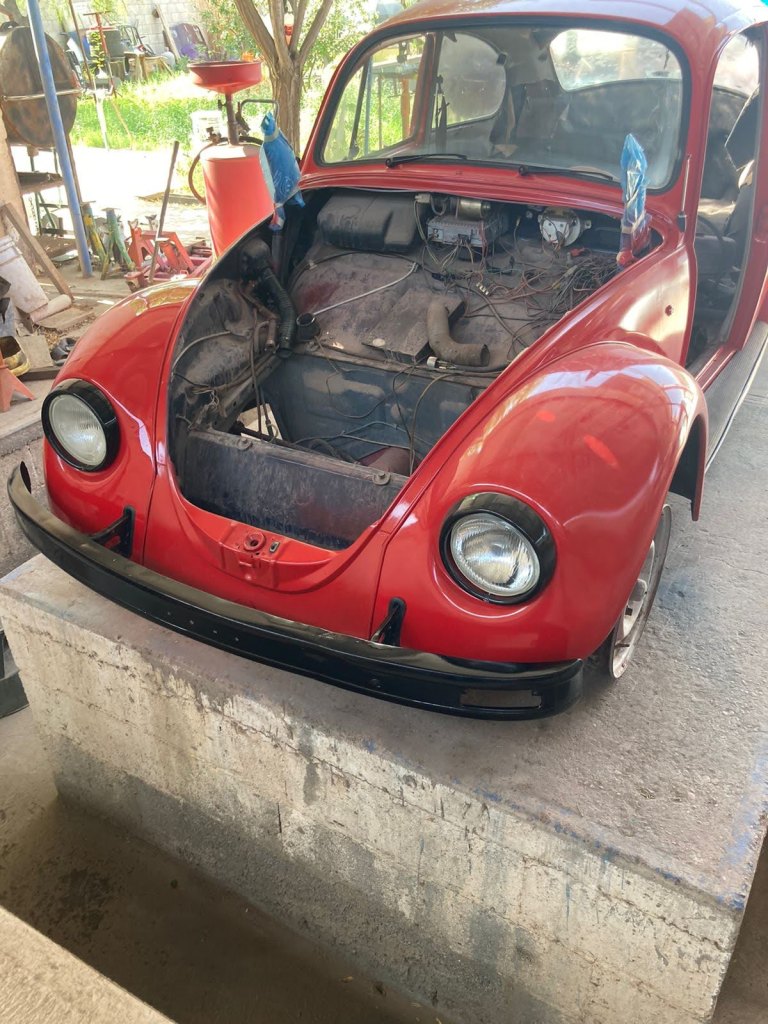
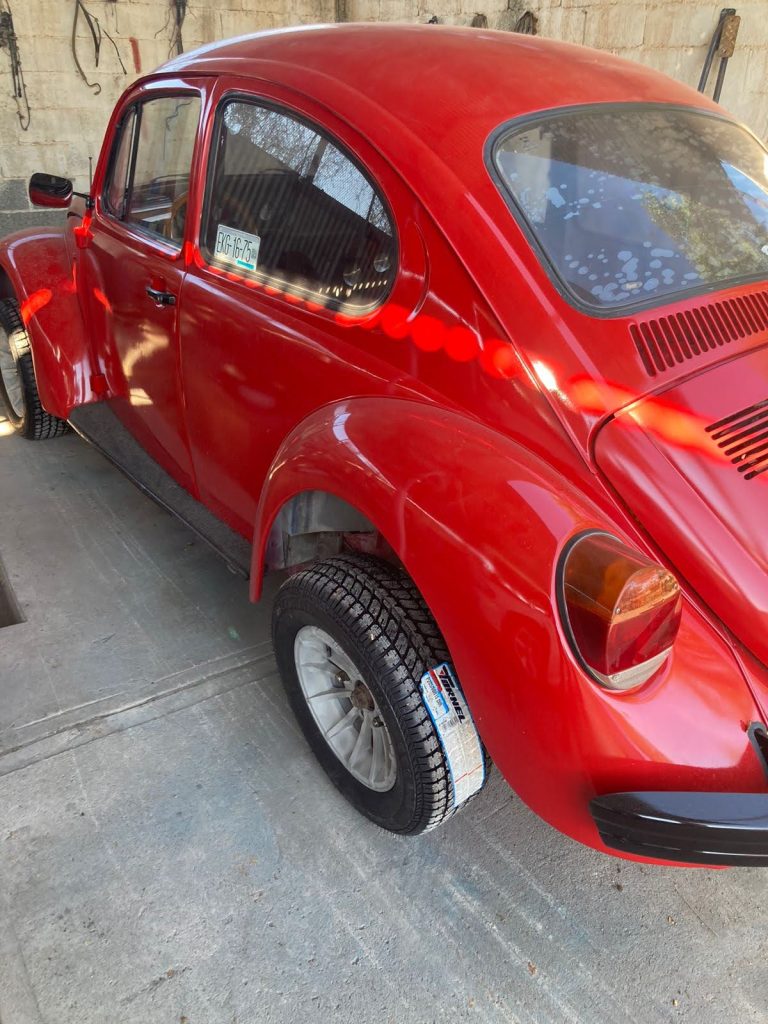
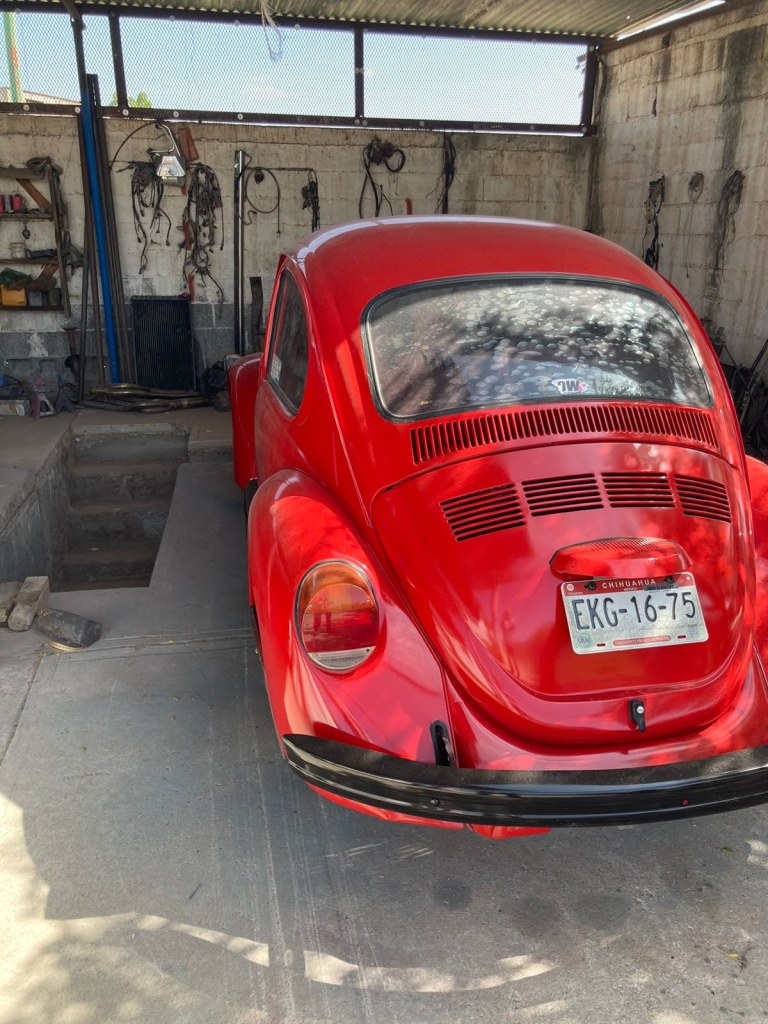
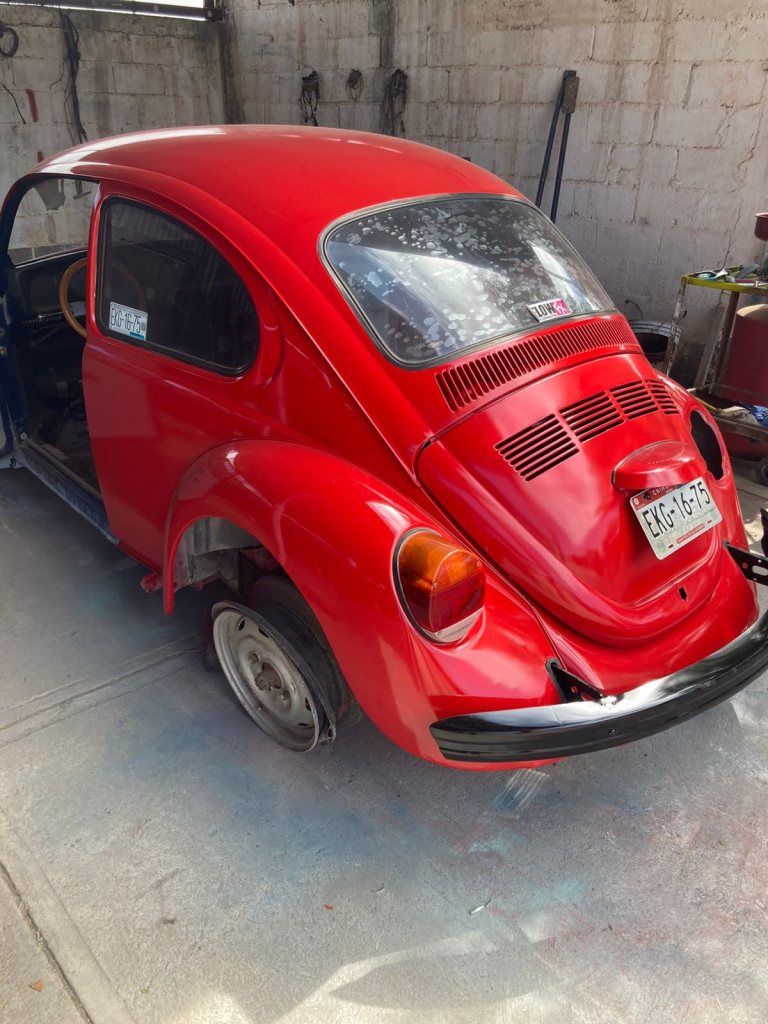
Dad was robbed of the opportunity to have a wonderful young man as a son. Andres moved from forensics with the state police to being an officer. He had a bright future, and he wanted to study law. He repeatedly said to me that he wanted to help the people of Chihuahua. He wanted to fix the ailments he saw around, the same ailments that herded people into poverty, crime, and away from opportunity and peace. I was robbed of a brother, and the opportunity to help him achieve his dreams, like I’ve tried to help my other brother and sister. (They’re both successful without much of my intervention.)
The people of Chihuahua were robbed of a champion.
We Shall Ride
I hope this project has helped dad truly grieve. I’ll be flying down to see him soon, and to drive the Beetle around a bit, maybe listening to some of the music Andres would have listened to… Maybe being with him for a little bit as we drive the old, dusty roads of the desert. We might even stop for tacos.

Thank you for reading. Please check out more of my thoughts over on my Medium.com blog at: https://medium.com/@epiren
Or listen to my ramblings on the Epidemiological Podcast: https://anchor.fm/rene-najera
Stalk me on LinkedIn: https://www.linkedin.com/in/renenajera/
Or be a total creep and follow me on Facebook: https://facebook.com/rene.f.najera
What’s that? I’ve blocked you? Well… ¯\_(ツ)_/¯